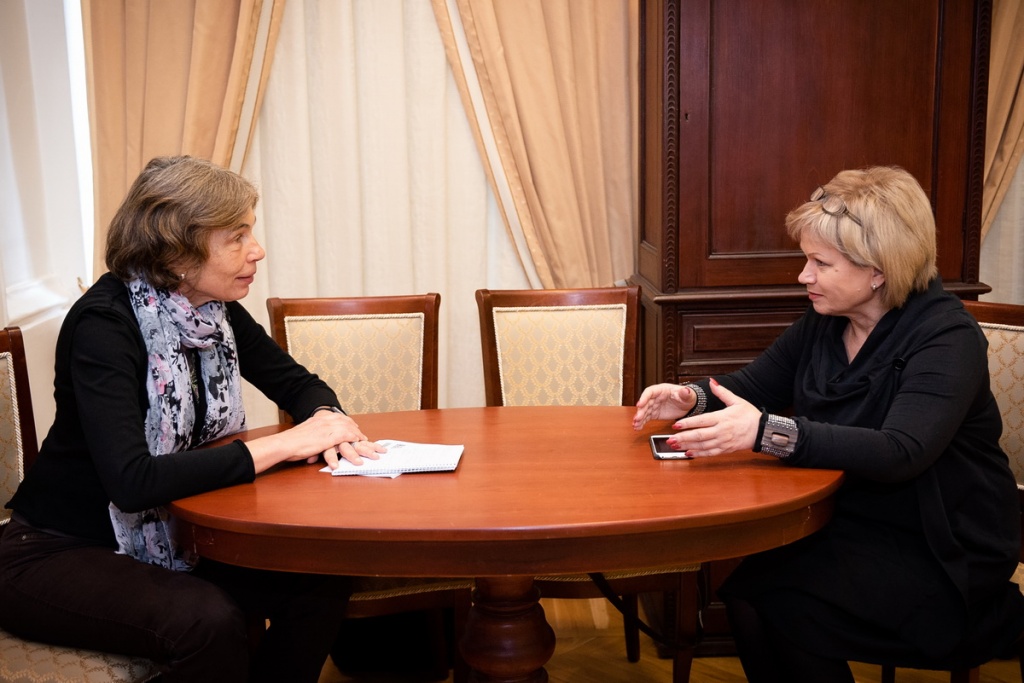Preparing for her first trip to Siberia, Brigitte Voykowitsch, the correspondent of Austrian radio broadcasting corporation ORF Radio Ö1 channel Culture and Science, traveler, and author of several books, learned about the project of the TSU Department of Social Communications “Digital Nomadism: Global and Siberian Trend”. A few days ago, she interviewed Irina Kuzheleva-Sagan, the project manager, who explained how Siberian digital nomads are different from their colleagues from other regions of the world.

- Digital nomadism is a lifestyle when people constantly travel and always use the Internet for their work: on a computer or smartphone, said Irina Kuzheleva-Sagan head of the Department of Social Communications at the Faculty of Psychology. - And it is one of the main trends of our time.
At one time, American futurologist Alvin Toffler predicted that the 21st century would become an era of settled life: people would always be in their “electronic cottage” that was their home and office. But in reality, people are more curious and restless than Toffler thought. Digital nomads are global, moving between countries, and urban, moving within the city areas.
- Siberian and, in particular, Tomsk digital nomads are, as a rule, students or freelancers who prefer to prepare for classes and work not at home, but in third places: co-working, inexpensive cafes, or library spaces. The main thing is wi-fi there. - explained Irina Kuzheleva-Sagan. - The main difference of urban digital nomads in Tomsk, Novosibirsk, and Krasnoyarsk from their fellows from Berlin or Manchester is that, in fact, living such a nomadic and digital life, most of them do not suspect that they are those digital nomads.
Since 2012, the TSU Department of Social Communications has been dealing with the issues of digital nomadism. This is a multi-purpose project, from the tasks of identifying possible methods for studying various aspects of digital nomadism, developing various typologies of digital nomads, and determining their cultural and language codes to creating specific recommendations for companies and individuals on organizing business in the conditions of digital nomadism.
During this time, teachers of the department have prepared about 30 scientific publications on relevant topics and made presentations at international conferences at the Technical University of Berlin (TUB), the New Bulgarian University (Sofia), Saint Petersburg State University, and National Research University Higher School of Economics. In 2016, the Department organized and conducted an international transdisciplinary scientific and practical online conference Connect-Universum on the theme “Digital Nomadism: Global and Siberian Trend”, in which researchers from 14 countries participated.
